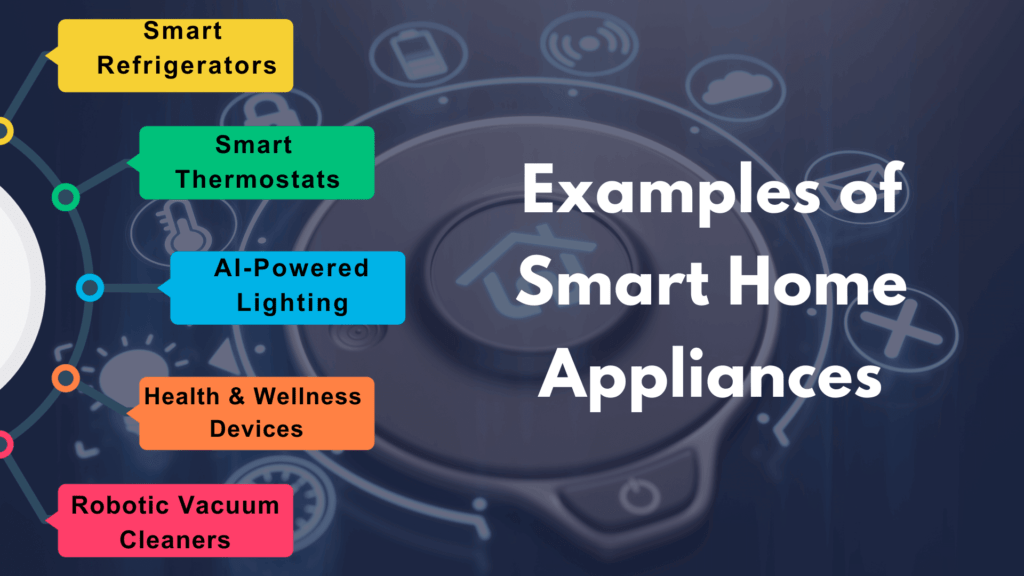In an era marked by the rapid progression of technology, the infusion of Artificial Intelligence (AI) into our every day routines is on the rise. Furthermore, a domain witnessing remarkable progress in AI integration is the realm of smart homes. Once envisioned as futuristic, smart homes have evolved into reality, offering a multitude of AI-driven conveniences and advancements.
This article explores the pivotal functions of AI in smart homes, facilitating innovation in convenience and efficiency. Additionally, it delves into the landscape of smart homes, highlighting recent developments and smart home services. Moreover, the article emphasizes the role of the smart home LLC and the impact of smart home 3D software. Furthermore, it also examines how smart home mortgage processes are being transformed for greater accessibility. Lastly, it showcases examples of smart home appliances, illustrating AI’s influence on modern living experiences.
AI in Smart Homes
Artificial Intelligence is the foundation on which the entire smart home ecosystem is constructed. Additionally, it enables these residences to adjust, acquire knowledge, and cater to the desires and choices of their residents. Furthermore, AI plays a crucial role in elevating the overall user satisfaction. But what exactly does AI do in a smart home?
First and foremost, AI serves as the brain of the smart home. Moreover, it empowers the central controller, often termed ‘smart home LLC,’ to seamlessly oversee and synchronize all linked devices. Furthermore, AI algorithms utilize data from devices to make informed real-time decisions, like adjusting lighting, temperature, and security settings.
In the context of home automation, AI’s role goes beyond mere connectivity. Additionally, it enables predictive analytics, allowing the home to anticipate user needs. For instance, on a cold winter night, AI can proactively set the thermostat to a cozy temperature before the homeowner thinks of it. This predictive feature not only enhances comfort but also promotes energy efficiency, ultimately reducing costs.
Furthermore, AI-driven virtual assistants, like those found in Smart Home Devices Alexa Compatible, are becoming household staples. Virtual assistants offer information, entertainment, and the convenience of managing the home environment through voice commands that control smart devices. Additionally, the ability to interact with AI through natural language is a clear testament to the rapid advancements in AI.
Smart Home Innovations
AI serves as the driving force behind numerous exciting innovations in the future of smart homes, shaping their evolution. Let’s take a closer look at some of these innovations.
The Smart Home LLC provides an all-encompassing smart home package, bringing together various smart devices like cameras, locks, and thermostats. Moreover, they ensure that all these elements collaborate seamlessly to deliver users an extremely personalized and convenient experience.
Traditional interior design and renovation processes can be arduous and expensive. However, AI’s Smart Home 3D Software is a game-changer, providing homeowners with unmatched precision to visualize and plan home improvements. Moreover, this interface empowers users to effortlessly create a lifelike 3D home model while seamlessly incorporating various smart devices and systems. Furthermore, AI algorithms use sensor and camera data to construct a 3D house model, enabling to explore different design possibilities. As a result, this technology not only saves time and money but also alleviates the stress related to home renovation.
Smart Home Devices Alexa Compatible are gadgets controllable through Amazon’s voice assistant, Alexa. Alexa understands spoken commands and can control lighting, cameras, locks, thermostats, and other devices. Users can effortlessly command them with phrases like “Alexa, activate the lights” or “Alexa, show the front door camera.”
AI is also making waves in the real estate market by streamlining the mortgage approval process. Smart Home Mortgage services utilize AI algorithms to analyze an applicant’s financial data, credit history, and other relevant information. This empowers lenders to offer rapid, precise mortgage approvals, simplifying home buying for potential owners and minimizing stress.
These services have transcended the realms of mere convenience and are now essential components of modern living. These services encompass a wide range of applications, from security to energy management.
AI-powered security systems are becoming increasingly sophisticated. They can distinguish between regular activities and potential security threats, minimizing false alarms and enhancing homeowners’ security. For instance, when an AI security system detects an unusual pattern, it can send an alert to the homeowner’s smartphone. If necessary, it can also contact emergency services.
The integration of AI in smart homes is crucial for sustainability. AI-driven energy management systems continuously monitor and optimize energy consumption. They can control lighting, heating, and cooling systems to minimize waste, resulting in substantial energy savings and carbon footprint.
Appliances in Smart Homes

To illustrate the practicality of AI in smart homes, let’s explore some examples of smart home appliances:
- Smart Refrigerators: AI fridges track food and offer recipes based on ingredients and dietary choices, streamlining meal planning and management.
- Smart Thermostats: Devices like the Nest Learning Thermostat adjust to user preferences and routines, resulting in substantial energy conservation.
- AI-Powered Lighting: Smart lighting adapts brightness and color according to time and user choices, setting the ideal mood for any event.
- Health and Wellness Devices: AI is being added to health and fitness devices like intelligent scales and wearables for personalized insights and advice.
- Robotic Vacuum Cleaners: Robotic vacuums powered by AI can efficiently traverse homes, grasping the layout and optimizing cleaning paths with minimal user involvement.
Road Ahead
In the coming years, we can expect further advancements in AI’s ability to understand human behavior and preferences. Consequently, this leads to smarter homes, which can anticipate our requirements and offer solutions before we recognize any problems. For instance, in the case of an elderly individual living alone, the smart home could autonomously identify and notify emergency services in the event of a fall. Furthermore, with the growing interconnectivity of smart homes, we can anticipate the emergence of smart neighborhoods. These neighborhoods will harness AI to enhance security, energy management, and transportation, fostering safer and more sustainable communities.
To conclude, the role of Artificial Intelligence in future smart homes is undeniable. As technology progresses, we’re experiencing a transformation in our living and interaction with our surroundings. Additionally, the incorporation of AI into smart homes is making our lives increasingly convenient, efficient, and safe. AI is central to the smart home revolution, managing daily routines, improving security, and promoting sustainability for a brighter future. Additionally, today’s innovations are just the start; the future holds more thrilling developments as AI technology keeps evolving. Our journey into the future of smart homes is thrilling, with AI as our guide, leading us with innovation.

